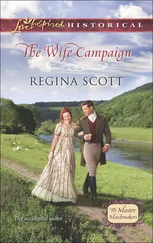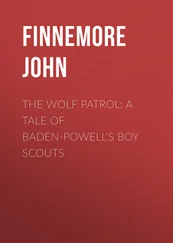Robert Baden-Powell of Gilwell - The Matabele Campaign
Здесь есть возможность читать онлайн «Robert Baden-Powell of Gilwell - The Matabele Campaign» — ознакомительный отрывок электронной книги совершенно бесплатно, а после прочтения отрывка купить полную версию. В некоторых случаях можно слушать аудио, скачать через торрент в формате fb2 и присутствует краткое содержание. Жанр: foreign_antique, foreign_prose, на английском языке. Описание произведения, (предисловие) а так же отзывы посетителей доступны на портале библиотеки ЛибКат.
- Название:The Matabele Campaign
- Автор:
- Жанр:
- Год:неизвестен
- ISBN:нет данных
- Рейтинг книги:5 / 5. Голосов: 1
-
Избранное:Добавить в избранное
- Отзывы:
-
Ваша оценка:
- 100
- 1
- 2
- 3
- 4
- 5
The Matabele Campaign: краткое содержание, описание и аннотация
Предлагаем к чтению аннотацию, описание, краткое содержание или предисловие (зависит от того, что написал сам автор книги «The Matabele Campaign»). Если вы не нашли необходимую информацию о книге — напишите в комментариях, мы постараемся отыскать её.
The Matabele Campaign — читать онлайн ознакомительный отрывок
Ниже представлен текст книги, разбитый по страницам. Система сохранения места последней прочитанной страницы, позволяет с удобством читать онлайн бесплатно книгу «The Matabele Campaign», без необходимости каждый раз заново искать на чём Вы остановились. Поставьте закладку, и сможете в любой момент перейти на страницу, на которой закончили чтение.
Интервал:
Закладка:
15th to 18th May. – Athletic sports, tableaux, concerts, and the fancy dress ball, and our dinner–party to the captain.
The ball was interesting in showing the diverse taste of diverse nationalities. Four Frenchmen and one lady so prettily and well got up. The British officer, save in one or two instances (of which, alas! I wasn’t one), could not rise to anything more original than uniform. An ingenious young lady put us all to shame appearing as Britannia, “helmet, shield, and pitchfork too,” all complete. (Nose and helmet didn’t hit it off, – at least – yes – the nose did hit it (the helmet) off, and the hat had to be worn the wrong way round to allow more room.)
19th May. – At 4 a. m. I awake with an uncanny feeling. All is silence and darkness. The screw has stopped, the ship lies like a log, the only sound is the plashing of the water pouring from the engine, and occasionally sharp footsteps overhead.
And, looking from my port, I see, looming dark against the stars, the long, flat top of grand old Table Mountain – its base a haze from which electric lights gleam out and shine along the water.
A busy day. No news except that Sir Frederick had gone on up to Mafeking, and I was now to follow.
General Goodenough inspected our troops upon the wharf among the Cape carts, niggers, cargo, trollies (drawn by the little Arab–looking horses), and the Cape Town dust. The troops go off by train to Wynberg Camp to await Sir Frederick’s orders.
Old Cape Town just the same as ever. Same lounging warders and convicts digging docks. Malays and snoek fish everywhere. Adderley Street improved with extra turreted, verandahed buildings. The Castle venerable, low, and poky as of yore, and – of course – under repair. Short visits there, to Government House, and to that beautiful old Dutch house in Strand Street where one learns the Dutch side of the questions of the day.
By nine o’clock at night we’re all aboard the train for Mafeking – a thousand well–remembered faces seem to be there on the platform cheering us away as we steam out into the night.
Hard beds, cold night, bumpity flap we go.
20th May. – Rattling along over the Karoo. Stony plains with frequent stony hills and mountains. The clearest atmosphere, and air like draughts of fresh spring water. Up hill, down dale – the train crawling up at foot’s pace with heart–breaking, laboured panting of the engine, then down the other side rattling and swaying about like a runaway coster’s barrow.
Three times in the day we stop at wayside stations where there’s a kind of table d’hôtel prepared – much as it is in India, only less so.
Very little life along the line, beyond an occasional waggon with its lengthy team of oxen or of donkeys, creeping at its very slowest pace along the plain.
Our own pace, however, is not much to boast about; we don’t go fast, and often stop to execute repairs.
The scenery remains much the same, except that the stony plain gives place to white grass veldt sparsely dotted with little thorn–bushes – its only beauty (and that is matchless of its kind) the wonderful colours of the distant hills, especially at dawn or sunset.
We pass by little groups of iron–roofed houses – sanatoria where people come to live – or die – whose lungs are gone.
Kimberley. Miles of mineheads, mounds of refuse, town of tin houses and dust, a filthy refreshment room, – and on we go.
22nd May. – At last, after three nights and two days jogging along in the train, we rattle into Mafeking at 6 a. m.
“ Into Mafeking?” Well, there’s a little tin (corrugated iron) house and a goods shed to form the station; hundreds of waggons and mounds of stores covered with tarpaulins, and on beyond a street and market square of low–roofed tin houses. Mafeking is at present the railway terminus. The waggons and the goods are waiting to go north to Matabeleland, but here they’re stranded for want of transport, since all the oxen on the road are dying fast from rinderpest. However, every train is bringing up more mules and donkeys to use in their stead.
Near to the station is the camp of the 7th Hussars and mounted infantry of the West Riding and the York and Lancaster Regiments. These troops are waiting here in case they may be wanted in Matabeleland.
Thus Mafeking is crowded.
Sir Frederick is here, and we, the staff, take up our quarters for a few days in a railway carriage on a siding. The staff consists of Lieutenant–Colonel Bridge, A.S.C., as Deputy Assistant Adjutant–General (for Transport and Supply), Captain Vyvyan, Brigade Major; Lieutenant V. Ferguson, A.D.C.; my billet is Chief Staff Officer.
While here at Mafeking we are the guests of Mr. Julius Weil, the genius – in both senses – of this part of South Africa. He works the machinery of transport and supply of the Chartered Company; his “stores” have in them everything that man could want to buy. “Weil’s Rations” are known half the world over as the best tinned foods for travellers; he owns the best of dogs and horses; he is Member of the Legislative Assembly of the Cape: and withal he is young and lively!
23rd May. – Our only news from Matabeleland is that Cecil Rhodes has safely got across from the East Coast, through Mashonaland, to Buluwayo, with a column under Beal. And that Plumer’s force, specially raised here in the south, had got within touch of Buluwayo without fighting. Rhodes had said the neck of the rebellion now was broken – and with it go the necks of all our hopes.
But still we shove along.
Packed up our kits, and in the afternoon embarked, the four of us (the General, Vyvyan, Ferguson, and self), in the coach for Buluwayo. The coach a regular Buffalo–Bill–Wild–West–Deadwood affair; hung by huge leather springs on a heavy, strong–built under–carriage; drawn by ten mules. Our baggage and three soldier–servants on the roof; two coloured drivers (one to the reins, the other to the whip). Inside are four transverse seats, each to hold three, thus making twelve “insides.” Luckily we were only four, and so we had some room to stretch our legs. We each settled into a corner, and off we went, amid the cheers of the inhabitants of Mafeking. One, more eager than the rest, – a former officer of Sir Frederick’s in the Bechuanaland Police, – jumped on, and came with us for thirty miles, trusting to chance to take him back again.
That night we reached Pitsani, a single roadside inn, – the starting–place of Jameson’s raid into the Transvaal. We stopped, and supped, and slept, and started on at daybreak. This stopping to sleep was but a luxury which we did not come in for afterwards along the road.
24th May. – Does it bore you, a daily record of this uneventful journey? Well, if it does, you easily can skip it, which is more than we could do, alas!
All day over a sandy track, on open, white grass veldt, which generally changed into hilly country, dotted with thorn–bushes. All waterless. The mules, of which we get a change every ten or twelve miles, in very poor condition – so our pace is very slow.
Reached Ramoutsa after dark, after 65–mile drive. Tin hotel, and large native kraal town (said to have 10,000 inhabitants in its mass of beehive huts). Boyne living here; a well–known hunter on the Kalehari, and had shot with “Ginger” Gordon (15th Hussars).
A native “reed dance” was going on in the “stadt” (as they call the native town), – every man blowing a reed–whistle which gives two notes, and, played in numbers, gives a quaint, harmonious sound. The men dance in a circle, stamping the time; the women waggle round and round the circle, outside it. Altogether a very “or’nery” performance, especially as all were dressed in European store–clothes.
Читать дальшеИнтервал:
Закладка:
Похожие книги на «The Matabele Campaign»
Представляем Вашему вниманию похожие книги на «The Matabele Campaign» списком для выбора. Мы отобрали схожую по названию и смыслу литературу в надежде предоставить читателям больше вариантов отыскать новые, интересные, ещё непрочитанные произведения.
Обсуждение, отзывы о книге «The Matabele Campaign» и просто собственные мнения читателей. Оставьте ваши комментарии, напишите, что Вы думаете о произведении, его смысле или главных героях. Укажите что конкретно понравилось, а что нет, и почему Вы так считаете.












